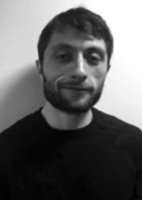-
1. Cover
-
2. Introduction
-
3. Contents
-
4. GSK: Rethinking oncology
-
5. ASCO 2020: The biggest scientific advances
-
6. Sign-up for pharma news alerts
-
7. Adapting for the future of oncology
-
8. Making it as an oncology biotech in the UK
-
9. Trial challenges in the COVID-19 era
-
10. Podcast
-
11. Helping oncologists manage complexity
-
12. How to increase oncologists’ confidence
-
13. The evolving advanced cancer landscape
-
14. Commercialising innovative medicines
-
15. Subscribe to future Deep Dive issues
-
16. Contact the Deep Dive team

